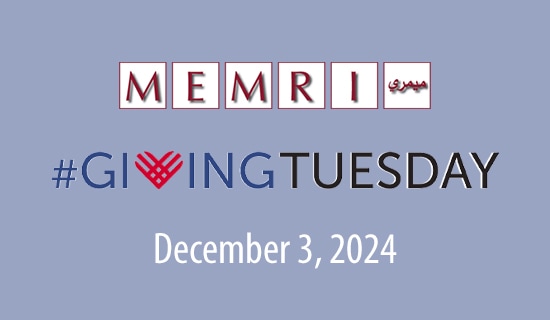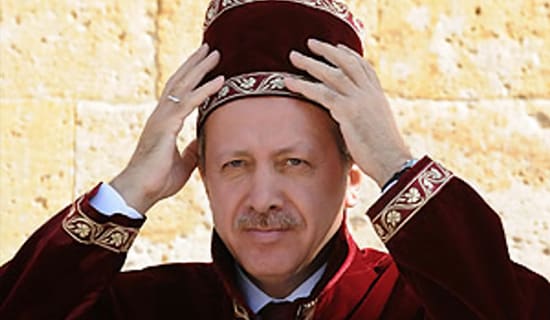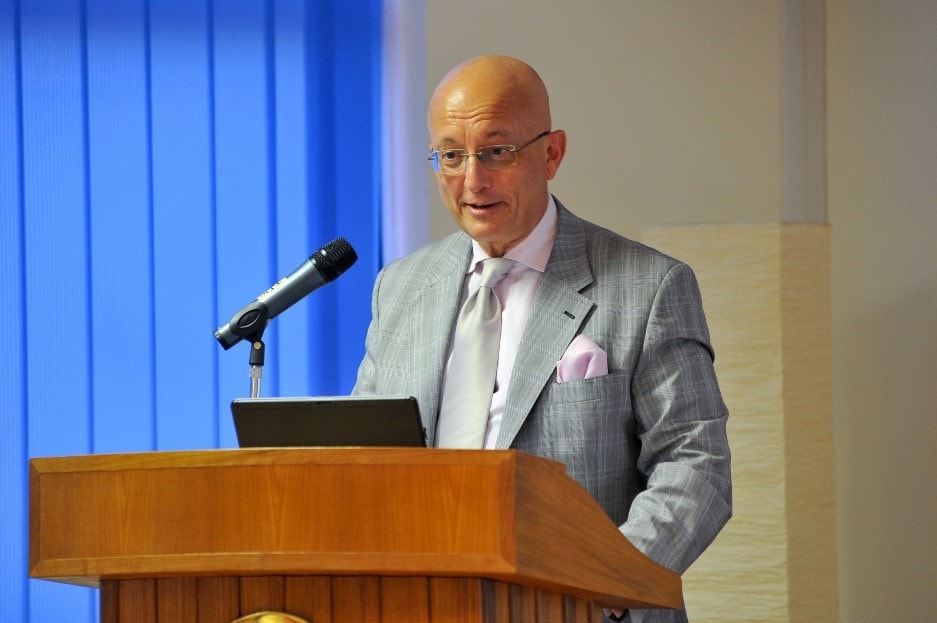In the past two weeks, the Syrian regime has renewed its calls for a military operation in Idlib, the rebels' last stronghold in the country. The regime's previous attempt to retake the city by force, two months ago, was halted when Russia and Turkey signed a memorandum of understandings (MOU) in Sochi on September 17, 2018.[1] Under the MOU, Idlib was to remain a de-escalation zone, as previously designated in the Astana agreement signed May 6, 2017 by Iran, Russia, and Turkey.[2] The MOU also called for the establishment of a demilitarized buffer zone, 15-20 kilometers wide, from which the "extremist organizations" would withdraw, and stated that the implementation of the MOU would be overseen by Russia and Turkey.[3]
From the outset it appeared unlikely that the MOU would be implemented by either the regime or the rebels. The regime initially welcomed it, but clarified that it was a "temporary" agreement "with defined timetables" that is "part of previous agreements concerning de-escalation zones... [agreements] based on commitment to sovereignty, unity, Syrian territorial integrity, and freeing all Syria from terrorism..."[4] The rebel factions, headed by Hay'at Tahrir Al-Sham (HTS), also expressed reservations about the MOU. Thus, it took only a few days after the MOU was signed for both sides to breach it, and for regular sporadic exchanges of fire to commence.
The regime's skepticism vis-à-vis the MOU was also manifested in articles in the Syrian government press expressing doubt about Turkey's intentions to implement it and its capability to do so, and stressing that Idlib must be restored to the regime.[5] Reflective of the regime's view of the MOU are the past two weeks' increase in tensions on the ground, in the form of regime attacks on rebel outposts in the de-escalation zones;[6] reports of a massing of pro-Iran forces in the rural area north of Aleppo;[7]and statements by Syrian regime officials, first and foremost Syrian Minister for National Reconciliation Affairs Ali Haidar, who declared that the agreement was not being implemented and stressed that Idlib would be brought back under regime control – an argument also presented in many articles in the Syrian government and pro-government press.
It should be noted that there has also been a shift in Russia's position regarding the MOU; while at first it said that it was adhering to it and that Turkey was acting to implement it, it is now claiming that the MOU is not being implemented, either by Turkey or by the rebels.[8] In recent days, both Russia and the Syrian regime have announced that they have intelligence indicating that the rebels are planning a chemical attack for which they will blame the Syrian regime.[9] On November 24, they stated that the rebels had carried out such an attack on a residential neighborhood in Aleppo.[10] The next day, November 25, it was widely reported that Russian planes had, for the first time since the Sochi agreement was signed, bombed rebel positions in a de-escalation zone.[11]
It is possible that the reports on the chemical attack and who was behind it were meant to establish legitimacy for a Syrian regime attack on Idlib – a perspective expressed by articles published in the Syrian government press after November 24. It is also possible that the Syrian regime's and Russia's expressions of doubts about the MOU and their indications that a military option is on the table vis-à-vis Idlib are aimed at pressuring Turkey into increased flexibility at the upcoming Astana talks set for November 28-29, 2018.
The following are excerpts from articles appearing last week in the Syrian government and pro-government press that call on the regime to launch a military offensive in Idlib.
A Decisive Military Operation Is Imminent; The Syrian Army Is Ready, With Its Finger On The Trigger
'Ali Qassem, editor-in-chief of the Syrian government daily Al-Thawra, accused both the rebel factions and Turkey of violating the MOU. In an article headlined "Idlib According to Syrian Timing," he wrote: "The de-escalation zone in Idlib is no different from the previous [de-escalation] zones. The rules that apply to it are the same as the ones applying to the villages, cities, and areas in the [other zones] for whom it became time [to return to the Syrian fold]. Now it is time [for Idlib] to be reintegrated into the Syrian fabric... The [repeated] extensions [for implementing the MOU given to Turkey and the rebels] have effectively expired... – meaning that a military [operation] is imminent. This proves that issues that cannot be resolved politically and on the ground require a military solution."[12]
Al-Thawra columnist 'Abd Al-Rahim Ahmad wrote, in a similar vein: "The Syrian government, which until now has acted with unmatched restraint so as to facilitate Russia's efforts to progress [in the matter of Idlib], is stressing that it will retake Idlib either peaceably or by means of war. While it prefers the peaceable path, it will not remain patient for long in light of the terrorists' continuing aggression and crimes.
"Syria's war rooms are no doubt buzzing with activity and coordination efforts. Should the efforts to avoid a military operation in Idlib fail – especially considering that the terror organizations continue to violate the [Sochi] agreement – the Syrian army is ready, with its finger on the trigger, because terrorism cannot be curbed with understandings, but only with weapons and with the will of the soldiers who have pledged their lives to the homeland."[13]
The Idlib Agreement Has Failed; This Round Of Astana Talks Will Decide Idlib's Fate
Silva Razouq likewise wrote, in her column for the pro-regime daily Al-Watan, that the MOU had failed and that a military operation was on the horizon. She added that the coming round of talks in Astana would decide Idlib's fate and push Turkey into making deeper concessions: "As of this writing, the Russian-Turkish agreement on Idlib has failed, as anticipated, to meet the goals that the Russians hoped to achieve. The situation on the front lines remains the same, and has even worsened, in that Jabhat Al-Nusra has gained near-complete control [of the area].
"The armed factions that control the areas that should, under the Sochi agreement, be demilitarized have conveyed a very clear and unequivocal message by refusing to cooperate with all efforts to disarm them and to move them back to the agreed-upon lines. Turkey's need to sabotage this agreement was even more obvious, especially considering that according to a stream of reports, the armed militias have announced their preparations for their campaign against the Syrian army [in Idlib], which will surely come.
"On the other hand, the Syrian army's policy is one of self-restraint until the last possible moment, and it is trying to avert its eyes from [the rebels'] deliberate violations [of the MOU], for two reasons. The first [reason] is the need to resolve the issue of the south once and for all and to deprive the U.S. of the fodder for extortion with which it has threatened the region for so long, and the second is Russia's desire to give the Sochi agreement one more chance...
"The growing indications on the ground, which appear to suggest an upcoming announcement that the Sochi agreement [MOU] is about to collapse, have so far been at odds with the political signs which have not indicated any escalation. But this changed yesterday, relatively speaking, when the Turkish defense minister was summoned to Sochi [after which] his Russian counterpart Sergei Shoygu announced that 'the situation in Syria requires immediate intervention by Ankara and Moscow.' This Russian announcement is rife with important signs and indications, on the eve of the 11th round of the Astana talks – talks which will apparently be decisive in determining the options for Idlib and in [finally] pushing the Turks into a corner [and into making greater concessions]...
"What is certain so far... is that continued participation in the current scenarios in the north [i.e. compliance with the MOU] is no longer remotely possible. What is even clearer is that Syria and Russia are preparing, in equal measure, to seek out new and more serious scenarios. Despite the multiple proposed options, the military option seems to be imminent, while [the option of] maintaining the status quo, with terrorism spreading throughout the north, is no longer viable... The entire north must get on board with the familiar Syrian solution known to all, that is solely 'retaking every inch of Syrian soil.'"[14]
Al-Thawra columnist Raghib Al-Atiyya likewise addressed the upcoming talks in Astana, writing: "Over two months have passed since [the signing of] the Sochi agreement on Idlib, and the Turkish regime is still deceiving [everyone] and evading its commitments regarding the demilitarized zone... If this agreement fails in the next few days, the Syrian army – and no one else – must make the decisions.
"In light of the violations [of the MOU] on the part of the terror organizations deployed in and around Idlib, [and in light of their] unceasing [attacks] on Syrian positions, the Astana talks' guarantors [i.e. Iran, Turkey, and Russia] must take a clear stand at their summit late this month [November] in the Kazakhstan capital [Astana]. They must hold the Turkish regime responsible for the agreement's [i.e. the MOU's] failure and for every one of the terrorists' violations against the units of the Syrian Arab army in the area.
"The [2017] de-escalation agreement and the Idlib agreement [MOU] were established under temporary political solutions drawn up by the guarantor states [Iran, Turkey, and Russia], after consultations between Moscow and Damascus; Damascus consented to the commendable Russian effort in matters concerning the de-escalation agreement. But the permanent solution is to bring Idlib and the other areas back into the bosom of the homeland, whether with a peaceable political solution or a military victory."[15]
Articles In Al-Thawra Following Reports Of Aleppo Chemical Attack: This Is Not The Time To Give The MOU Another Chance
The Syrian regime position, i.e. that a military operation in Idlib is imminent, was expressed even more forcefully after the reports of a chemical attack in Aleppo, attributed by the Syrian regime and its allies to the rebels. Al-Thawra editor 'Ali Qassem wrote: "We cannot remain silent in the face of the terror attacks on innocent victims, no matter what justifications and political circumstances are presented by all sorts of elements. Part of the reason for what happened [i.e. a chemical attack allegedly carried out by the rebels] is Turkey's deception regarding the implementation of the agreements it signed with Russia on the so-called de-escalation zones [i.e. the MOU] – because under these agreements these areas [should have been] free of terrorists, their weapons, and their presence, had they been implemented in accordance with the agreed-upon timetable...
"It is time to first of all expel [the terrorists] from everywhere they are found... The situation has become unbearable. There is no more room for extensions or for granting [further] opportunities for deception which will result in a worse catastrophe [than before], in light of the reports[16] on serious practical preparations for a broader and more devastating use of chemical weapons."[17]
Additionally, Al-Thawra columnist Mundhir 'Id wrote: "The heart of every Syrian is undoubtedly with the residents of Aleppo, but what is more important is that the eyes of the international community and the Syrian army must be focused on Idlib, in order to eliminate all the terrorists and stop their crimes and their plans to destroy the Syrian state. It is obvious that [reaching] the moment of truth in Idlib is more necessary than ever, especially in the face of organizations that recognize no treaty or agreement..." [18]
[1] On the regime's preparations for the battle for Idlib, see Special Dispatch No. 7697, Defeated Opposition Fighters In Syria Are Sent By Regime To Northern Syria To Fight Their Former Brothers In Arms, October 4, 2018.
[2] The Astana agreement designated four de-escalation zones in Syria: Dar'a in the south, the Eastern Ghouta near Damascus, areas in northern Homs, and Idlib. Mid.ru, May 6, 2017. This agreement was arrived at after deep divisions broke out between Russia and Turkey at a September 7, 2018 summit in Tehran attended also by the presidents of Russia, Turkey, and Iran. At the summit, Russian President Vladimir Putin demanded action to eliminate the rebel stronghold in Idlib but Turkey vehemently opposed this. The MOU between Russia and Turkey on continuing the de-escalation zone in Idlib, signed a week later at Sochi, constituted a temporary Russian and Iranian capitulation to Turkey's wishes.
[3] Thenational.ae, September 19, 2018.
[4] Al-Thawra (Syria), September 19, 2018.
[5] See e.g., a September 19 article by Al-Thawra editor 'Ali Qassem and a September 18 column by Al-Thawra columnist Mustafa Miqdad.
[6] Al-Quds Al-Arabi (London)November 10, 2018.
[7] Al-Hayat (Dubai), November 15, 2018.
[8] Al-Akhbar (Lebanon), November 26, 2018.
[9] Arabic.sputniknews.com, November 22, 2018.
[10] SANA (Syria), November 25, 2018.
[11] Al-Hayat (Dubai), November 26, 2018, and others.
[12] Al-Thawra (Syria), November 21, 2018.
[13] Al-Thawra (Syria), November 21, 2018.
[14] Al-Watan (Syria), November 21, 2018.
[15] Al-Thawra (Syria), November 22, 2018.
[16] On November 25, 2018, the day after reports of a chemical attack in Aleppo allegedly carried out by rebels, the Russian news outlet Sputnik reported that Hay'at Tahrir Al-Sham had that day moved 50 missiles with chemical warheads. Arabic.sputniknews.com, November 25, 2018.
[17] Al-Thawra (Syria), November 26, 2018.
[18] Al-Thawra (Syria), November 26, 2018.





